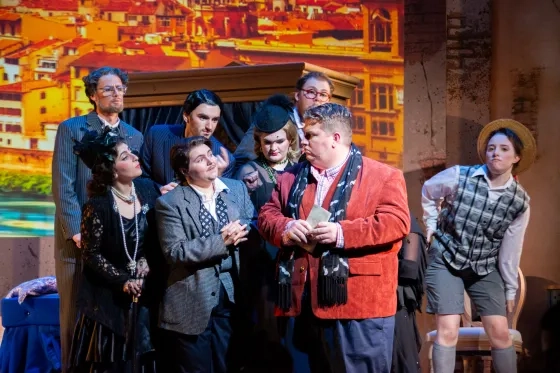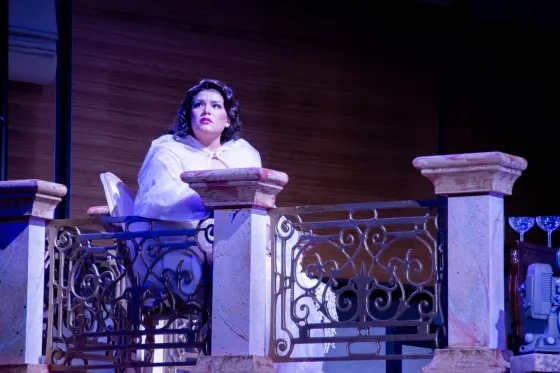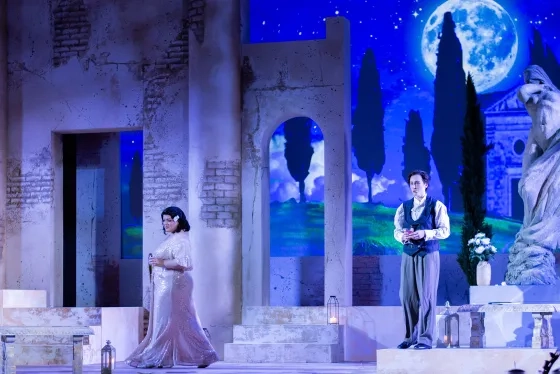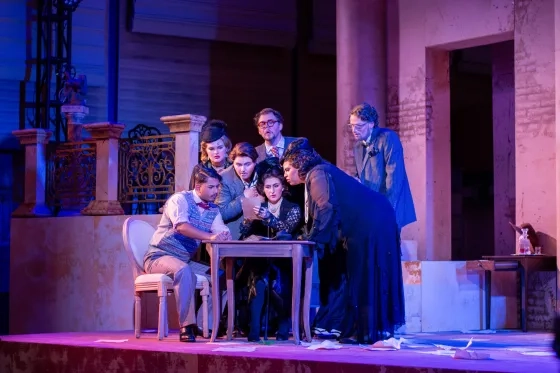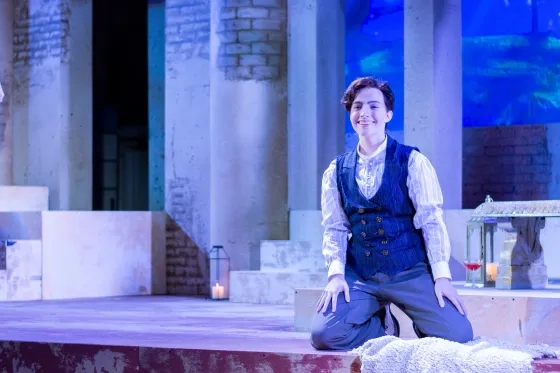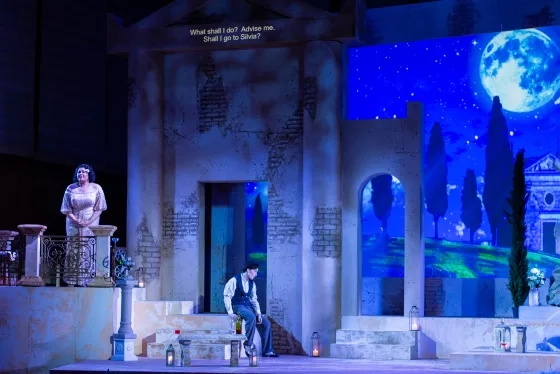How SFCM Brings Its Operas to Life
SFCM's 2023 fall opera was a double bill of Pietro Mascagni's 'Zanetto' and Giacomo Puccini's 'Gianni Schicchi.'
For SFCM's Musical and Managing Director of Opera, Curt Pajer, the fall 2023 opera performance meant keeping students on their toes. "The tempo in these pieces changes in almost every bar," he says, "so the singers can't ever really go on autopilot—not that they ever would."
Autopilot isn't an option for anyone involved in an SFCM opera production. "Many of these players ask to be in the opera orchestra because they enjoy it so much," Pajer says. "The skill that they are honing here is to not take anything for granted and recognize that things could happen on stage that might make us do things a little bit differently. The pieces are double-cast, and I would never ask two singers to sing an aria the exact same way, so that means the orchestra has to be, from one night to the next, ready to really turn on a dime."
The fall opera is cast in August during orientation. For the first month of prep, Pajer says the students are focused on learning, translating, and memorizing their roles. This time around, the cast also had a group listening session to the operas, followed by a discussion, and read the stories in both Italian and English. From there, prep moves into the coaching phase, with one-on-one sessions with a pianist and the singers, going through the entire role piece-by-piece before the scenes are strung together, before the first "sing-through." Even staging is done with just a piano and Pajer; the cast doesn't sing with the orchestra until roughly the last three weeks of rehearsals.
Staging rehearsals are more the domain of Heather Mathews, Chair of Opera and Musical Theatre, Pajer explains. "That's a lot of different things: Talking more about the story; figuring out where to be for each moment and how to interact with each other, what the emotions are that are going on. That's a fun part of the process because we meet four times a week and really delve into the details."
The cast's first performance with the orchestra is referred to as sitzprobe, a German word for "sitting rehearsal:" The singers aren't performing their stage movements or particularly intense acting, they're just working on perfecting the musical side of things with the orchestra for the first time. Staging and a higher degree of character work are incorporated into a piano tech rehearsal that doesn't include the orchestra before the musicians and singers get into the Caroline H. Hume Concert Hall for the first full run-through. "For me, that's the fun part," Pajer says. "It's live theater. Anything can happen up there and we have to have the presence of mind to fix it in the moment. Honestly, I don't even know when it's over what went wrong, I just know that we fixed it and then life went on. Someone will come to me afterward and say, 'Oh my, I didn't know what happened,' and I'll say 'I don't know either, but we got through it.'"
"I'm lucky to have a great staff," Pajer says. "They're the unsung heroes: Nothing happens in opera without somebody playing the piano. We have some coaches from San Francisco Opera who come and help us on Mondays, which is their day off. I really owe them a lot because I get to have the fun job: My assistant, my associate conductor, the coaches and pianists, they don't get to go up on stage and take a bow when it's all over, but without them, none of this is possible."
Ultimately, Pajer says, the SFCM operas are an exercise in "rolling with the punches … Each step of the way we're adding a complication. First, we're just doing music, then we're memorizing it, then we're walking around while we're doing it and interacting with each other. Then we add the orchestra, then we get on stage and add a costume and props. Then we have to do all that on the stage that's been constructed for this."
Still, Pajer jokes, "I'm lucky because everybody loves my class—not because of me—but because it's the thing they came here to do. You should see the smiles. As an educator and as a musician, it's really heartwarming."
Learn more about studying voice, opera and musical theatre at SFCM.
